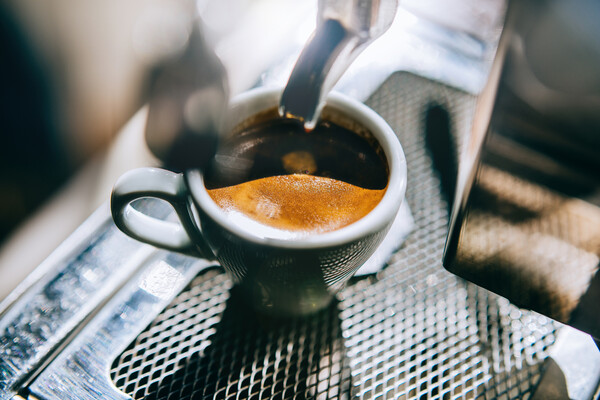[Jeong Jae-hoon's Column on Food & Drug]
There are claims that drinking coffee immediately upon waking is harmful. It's suggested to wait an hour or two after waking before consuming coffee. This advice aligns with how caffeine functions: throughout the day, the body produces adenosine, a substance that regulates the sleep-wake cycle. As you stay awake longer, adenosine accumulates, causing drowsiness. Caffeine blocks adenosine receptors, helping us stay alert. However, during sleep, adenosine levels decrease, reaching their lowest point upon waking. Drinking coffee at this time is less effective because there's minimal adenosine for caffeine to block.

Some argue that coffee consumption at too early hours is detrimental because it raises cortisol levels. Cortisol, a hormone released during stress, enhances alertness and focus. Blood cortisol levels peak in the morning and reach their lowest point during sleep at night. Since caffeine stimulates cortisol release, drinking coffee when cortisol is already high in the morning might lead to an excess.
However, this is mainly a theoretical concern. There's no need to avoid morning coffee to prevent high cortisol levels. Regular coffee drinkers' bodies adapt over time, reducing caffeine's impact on cortisol secretion. A 2005 American study found that caffeine had almost no effect on morning cortisol levels in habitual coffee consumers.
Of course, if you're a stay-at-home person, there's no harm in experimenting by delaying your morning coffee by an hour or two. However, in some cases, delaying your morning coffee can be dangerous. For instance, if you drive to work or operate heavy machinery early in the morning, postponing your caffeine intake might increase your risk of an accident, which can be life-threatening. It's important not to blindly follow health tips from TV or YouTube. Always consider your personal circumstances and what works best for you.
If you're genetically slow to metabolize caffeine, a morning cup of coffee can keep you alert all day. However, those who metabolize caffeine quickly might need an additional cup at lunch to avoid an afternoon crash. People who are very sensitive to caffeine might be better off not drinking coffee at all. Former coffee drinkers may need to adjust their intake as they age because their ability to metabolize caffeine decreases over time. Drinking coffee in the morning can boost your endurance and improve gym performance, but excessive coffee consumption while sedentary can cause heart palpitations and worsen anxiety. So, when is the best time to drink coffee in the morning? The answer depends on your metabolism and lifestyle.

Jeong Jae-hoon is a food writer and pharmacist. He covers a variety of subjects, including trends in food, wellness and medications. This column was originally published in Korean in Joongang Ilbo on June 6, 2024. – Ed.
Related articles
- [Column] Medications that cause dry eyes
- [Column] Exercise lowers the risk of anxiety
- [Column] Why you should take fewer pills
- [Column] Does the apple cider vinegar diet work?
- [Column] Why eating microplastics is harmful
- [Column] The truth about breakfast choices
- [Column] Why it's better to buy twigim instead of cooking it at home
- [Column] Foods that are really bad for your stomach
- [Column] A well-balanced diet matters, not a single food
- [Column] How to beat the heat wave
- [Column] The best ways to enjoy summer watermelon
- [Column] Why you shouldn't overeat on a hot day
- [Column] Olive oil and dementia mortality risk
- [Column] The science of cooking rice
- Coffee on an empty stomach causes gastric ulcers, raising the chances of cancer
- [Column] Coffee’s cancer scare is overblown

